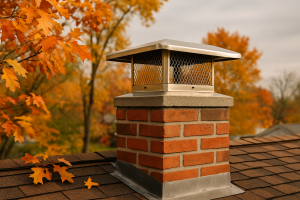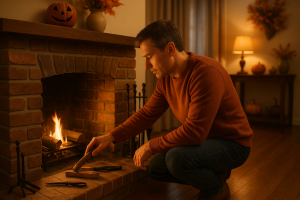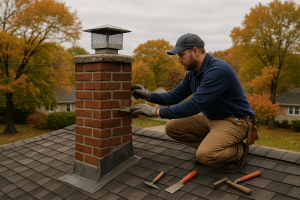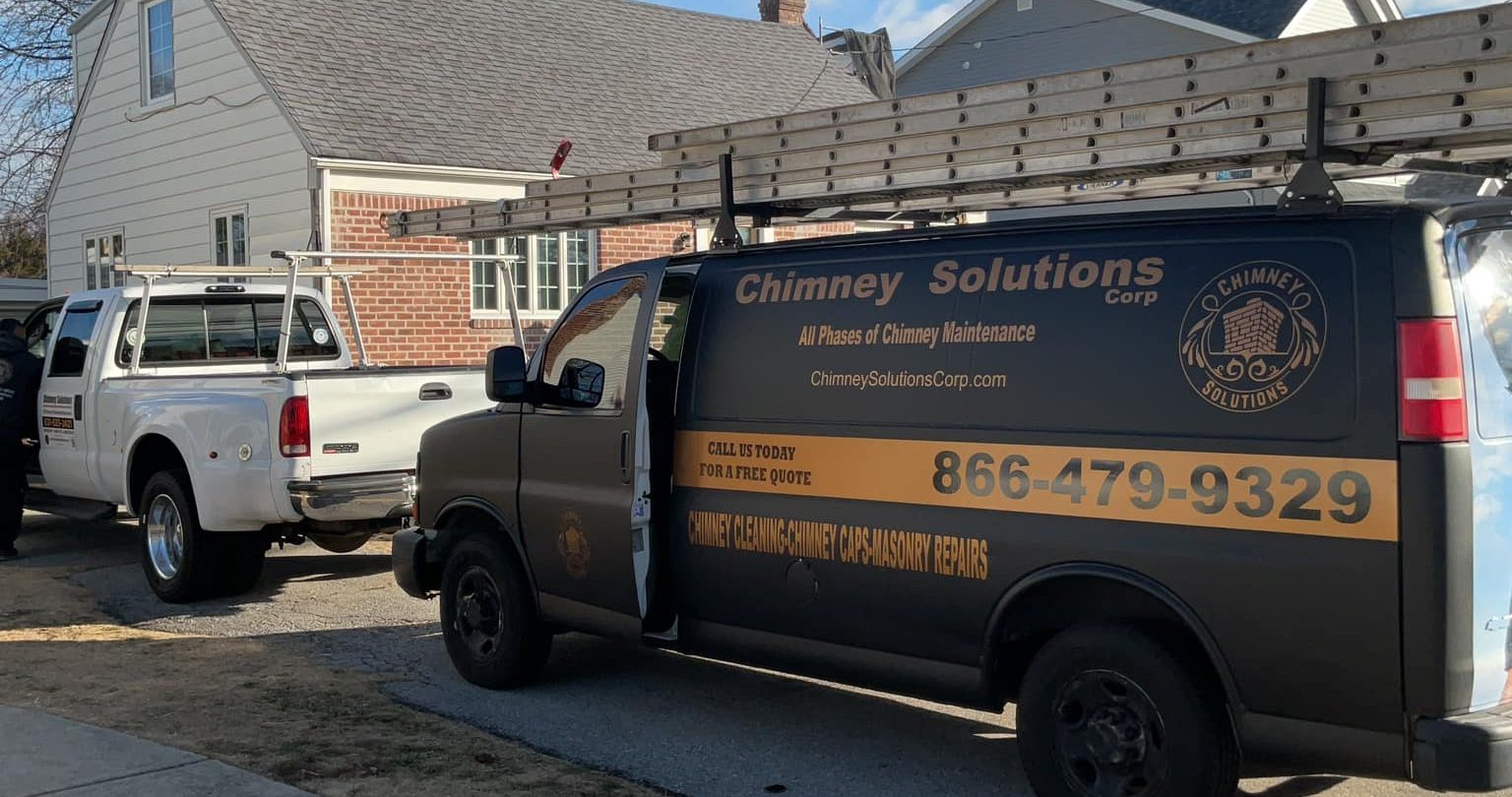Regular commercial chimney maintenance is a crucial aspect of property management that ensures the safe operation, efficiency, and longevity of your chimney system. For commercial properties, a well-maintained chimney not only prevents costly repairs and structural damage but also safeguards against potential hazards like creosote buildup, carbon monoxide leaks, and chimney fires. In this article, we’ll explore the importance of routine inspections, cleaning procedures, and timely repairs, while highlighting the benefits of professional chimney cleaning services offered by expert teams like those at Chimney Solutions. This proactive approach delivers peace of mind and ensures compliance with building codes and safety standards.
The Importance of Chimney Maintenance
Chimney maintenance is more than just keeping a clean chimney—it’s a critical element in preventing safety hazards and ensuring optimal performance. Regular cleaning and routine inspections help mitigate issues such as:
- Creosote Buildup: Over time, the accumulation of creosote—a flammable substance—can lead to chimney fires.
- Structural Damage: Failure to maintain your chimney can result in deteriorated chimney walls and other structural issues.
- Carbon Monoxide Poisoning: Blocked or dirty chimneys may cause harmful gases to leak back into the building, posing a serious risk of carbon monoxide poisoning.
Maintaining a clean chimney not only protects your commercial building from potential damage but also contributes to improved indoor air quality and energy efficiency.
Common Chimney Issues in Commercial Buildings
Commercial chimneys face a wide range of issues that can compromise their performance and safety. Some of the most frequent problems include:
- Dirty Chimney and Flue Liner Blockages: Regular chimney cleaning is necessary to remove the buildup of byproducts of combustion and corrosive gases.
- Water Damage: Moisture infiltration can lead to significant water damage, affecting both the chimney structure and surrounding masonry.
- Animal Nests: In commercial settings, animal nests can obstruct airflow and impede proper ventilation.
- Structural and Hidden Issues: Over time, minor issues can escalate into major repairs if left unaddressed, impacting the chimney’s overall efficiency and safety.
Addressing these common issues through regular maintenance minimizes the risk of extensive repairs and ensures a clean, well-maintained chimney.
Benefits of Regular Maintenance
Routine chimney maintenance offers numerous long-term benefits, making it an effective choice for commercial property owners. Key benefits include:
Enhanced Safety Standards
- Risk Reduction: Regular inspections help identify potential safety hazards, such as creosote accumulation and flue blockages, before they develop into dangerous situations like chimney fires.
- Compliance with Building Codes: Adhering to safety regulations and building codes is essential for commercial properties. Regular maintenance ensures your chimney meets current standards, reducing the risk of fines and insurance issues.
- Prevention of Carbon Monoxide Leaks: Timely cleaning and repairs prevent the buildup of harmful gases, ensuring proper ventilation and safeguarding occupants.
Cost Savings and Energy Efficiency
- Lower Energy Costs: A well-maintained chimney improves heating system efficiency by optimizing airflow and reducing energy loss. This means lower fuel consumption and decreased energy costs.
- Avoidance of Costly Repairs: Routine maintenance helps prevent extensive structural damage and water damage, saving you from expensive repairs and downtime.
- Extended Lifespan: Regular cleaning and inspections extend the lifespan of your chimney, making it a vital investment that pays dividends over time.
For more detailed guidelines on safety and maintenance standards, refer to resources from the National Fire Protection Association (NFPA) and CDC – Carbon Monoxide Poisoning.
Key Components of a Maintenance Plan
A comprehensive maintenance plan for commercial chimneys should include the following components:
Routine Inspections
- Annual Chimney Inspections: Professional chimney technicians should conduct thorough annual inspections to identify potential issues early.
- Detailed Evaluations: These inspections involve a comprehensive evaluation of the chimney structure, flue liner, and overall condition, ensuring any hidden issues are addressed promptly.
Regular Cleaning Procedures
- Professional Chimney Cleaning: Hiring a professional chimney sweep ensures that specialized tools and modern equipment are used to clean the chimney effectively.
- Scheduled Chimney Sweeping: Regular chimney cleaning, as recommended by experts, prevents the buildup of creosote and other byproducts of combustion, maintaining efficient airflow and optimal performance.
Timely Repairs and Restoration Services
- Minor and Major Repairs: A well-rounded maintenance plan includes prompt repairs to address both minor issues (e.g., damaged chimney caps or crowns) and more extensive repairs if needed.
- Preventative Maintenance: This proactive approach minimizes the risk of structural damage and ensures that your chimney remains in top condition.
Implementing these components provides a structured, proactive maintenance plan that safeguards your commercial chimney from potential issues and costly repairs.
Choosing the Right Professionals for Chimney Care
The expertise of a professional chimney service is indispensable for effective chimney maintenance. Here are some key factors to consider when selecting a service provider:
- Credentials and Certifications: Ensure that the company employs certified professionals, such as Chimney Sweep Certified technicians, who adhere to industry standards and safety codes.
- Experience in Commercial Services: Look for a service provider with a proven track record in commercial chimney cleaning and repair. Their extensive experience ensures they can handle the unique challenges of commercial properties.
- Customized Maintenance Plans: A reputable company will offer flexible scheduling and customized maintenance plans tailored to the specific needs of your building.
- Customer Satisfaction: Check customer reviews and testimonials to gauge the quality of service and overall customer satisfaction.
By choosing an expert team, you can benefit from a comprehensive evaluation and detailed report that outlines necessary repairs and maintenance tasks—ensuring the safe and efficient operation of your chimney.
Best Practices for Chimney Care
Adopting best practices for chimney maintenance is a proactive approach that helps prevent potential safety hazards and maintains optimal performance. Consider the following recommendations:
- Regular Inspections and Cleaning: Schedule annual inspections and routine chimney cleaning to remove accumulated creosote and ensure proper ventilation.
- Timely Repairs: Address any signs of structural damage, water damage, or blockages immediately to prevent costly repairs in the future.
- Proper Ventilation: Ensure that the chimney provides an efficient path for smoke and harmful gases to exit, reducing the risk of carbon monoxide leaks and improving indoor air quality.
- Use of Specialized Tools: Professional chimney technicians utilize advanced equipment and specialized brushes to thoroughly clean and inspect the chimney system.
Adhering to these best practices not only minimizes potential issues but also provides peace of mind knowing that your commercial chimney is maintained to the highest standards.
Signs Your Commercial Chimney Needs Attention
Recognizing early warning signs of chimney issues is critical for timely intervention. Key indicators that your commercial chimney requires maintenance include:
- Excessive Soot or Creosote Buildup: A dirty chimney with significant creosote accumulation is a major risk factor for chimney fires.
- Visible Structural Damage: Cracks in the chimney walls, missing or damaged chimney caps, or signs of water damage indicate potential structural issues.
- Poor Ventilation and Draft Issues: A poorly functioning chimney may exhibit signs such as weak draft performance, which can lead to inefficient combustion and increased energy costs.
- Unusual Odors or Smoke Patterns: Persistent unpleasant odors or irregular smoke patterns may signal blockages or animal nests within the chimney.
Early detection through routine inspections allows for prompt corrective action, ensuring that minor issues do not escalate into major repairs.
Conclusion: Long-Term Safety and Efficiency Through Regular Maintenance
In conclusion, regular commercial chimney maintenance is essential for ensuring long-term safety, optimal performance, and cost savings. By prioritizing routine inspections, professional cleaning, and timely repairs, commercial property owners can prevent potential hazards such as creosote buildup, structural damage, and carbon monoxide leaks. This proactive approach not only extends the lifespan of your chimney but also ensures that your heating systems operate at peak efficiency, ultimately reducing energy costs and the risk of expensive repairs.
For comprehensive chimney care, partnering with a professional chimney service like Chimney Solutions is a smart investment. Their expert team offers flexible scheduling, thorough inspections, and high-quality service, ensuring that your chimney remains safe, efficient, and compliant with modern safety standards and building codes.
For further details on maintenance guidelines and safety standards, visit reputable sources such as NFPA and up.codes. With regular maintenance and proactive care, you can enjoy peace of mind knowing your commercial chimney is well-protected for the long haul.
Invest in regular chimney maintenance today, and safeguard your commercial property against potential safety hazards and costly repairs—ensuring a safe, efficient, and comfortable environment for years to come.



